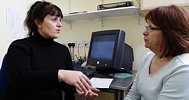|
|
 Acne (1,500) Acne (1,500)
 Addictions (1,500) Addictions (1,500)
 Advice (1,500) Advice (1,500)
 Allergies (1,092) Allergies (1,092)
 Alternative Medicine (1,500) Alternative Medicine (1,500)
 Anti Aging (1,500) Anti Aging (1,500)
 Breakup (1,500) Breakup (1,500)
 Cancer (1,499) Cancer (1,499)
 Dental Care (1,500) Dental Care (1,500)
 Disabilities (1,500) Disabilities (1,500)
 Divorce (1,500) Divorce (1,500)
 Elderly Care (1,498) Elderly Care (1,498)
 Goal Setting (1,500) Goal Setting (1,500)
 Hair Loss (1,500) Hair Loss (1,500)
 Health and Safety (1,497) Health and Safety (1,497)
 Hearing (1,500) Hearing (1,500)
 Law of Attraction (1,499) Law of Attraction (1,499)
 Marriage (1,500) Marriage (1,500)
 Medicine (1,497) Medicine (1,497)
 Meditation (1,499) Meditation (1,499)
 Men's Health (1,500) Men's Health (1,500)
 Mental Health (1,500) Mental Health (1,500)
 Motivational (1,500) Motivational (1,500)
 Nutrition (1,495) Nutrition (1,495)
 Personal Injury (1,499) Personal Injury (1,499)
 Plastic Surgeries (1,500) Plastic Surgeries (1,500)
 Pregnancy (1,496) Pregnancy (1,496)
 Psychology (1,500) Psychology (1,500)
 Public Speaking (1,500) Public Speaking (1,500)
 Quit Smoking (1,500) Quit Smoking (1,500)
 Religion (1,499) Religion (1,499)
 Self Help (1,500) Self Help (1,500)
 Skin Care (1,500) Skin Care (1,500)
 Sleep (1,500) Sleep (1,500)
 Stress Management (1,500) Stress Management (1,500)
 Teenagers (1,492) Teenagers (1,492)
 Time Management (1,500) Time Management (1,500)
 Weddings (1,500) Weddings (1,500)
 Wellness (1,500) Wellness (1,500)
 Women's Health (1,500) Women's Health (1,500)
 Women's Issues (1,500) Women's Issues (1,500)
|
In 2003, "Amylin," a young mother in rural Tennessee, was very addicted to methamphetamine. After she started manufacturing it at home to maintain her addiction, she lost custody of her children. The loss of her children drove her deeper into despair and more meth use which ended up resulting in a prison sentence and permanent damage to her heart. Because of meth, Amylin ended up losing everything, including her freedom, her children, her job, and her health. However, because of Amylin's will to change and the work of her area community mental health center to provide evidence-based treatments, everything was not lost forever.
After a 2-year prison stay, Amylin was released and entered a local drug court where she was sentenced to a 90-day inpatient treatment program. Following her inpatient treatment she was mandated by the court to continue her treatment in an intensive outpatient program. Amylin was referred to the methamphetamine evidence-based treatment and healing (METH) program at a community mental health center in Tullahoma, TN. Made possible by a federal SAMHSA grant, the METH program provided comprehensive, evidence-based and community-based treatment services for adults who abused meth and other emerging drugs as well as helped increase community awareness and education concerning prevalence, risks and effective treatments through outreach activities. The METH program, following the Matrix Model, gave services to each participant for 16 weeks, includes 3 group sessions a week & individual therapy. It taught participants effective strategies for treating meth addiction and techniques to help them remain drug free after the program was completed.
Amylin entered treatment in December of 2006 and, without missing a session, successfully completed the program in early April 2007. A key lesson that Amylin learned was how to recognize her triggers to use methamphetamine. Amylin stated, "This program helped me learn ways to recognize triggers and how to properly deal with them. I know that when I think about using or crave meth I need to talk to someone, 'play the tape forward' and think about the consequences of using, or go to meetings." The METH program helped Amylin realize that she could no longer interact with people using drugs or go to places where drugs were being used: "I know now that I can't go to 'those' places with old friends and the METH Program gave me alternatives to be aware of."
From her first-hand experience Amylin now educates everyone that she meets about the effects of drugs and alcohol. She routinely participates in panel discussions at the community mental health center, telling people new to recovery her powerful story about the consequences of drug use. Through her volunteer work she has made a positive impact not only in her own life, but in the lives of other program participants and the therapists. The strategies she has learned from the program have helped her overcome her addiction and remain drug-free. Because Amylin has changed her lifestyle and now has tools to use to deal with her addiction, she is employed, has regained full custody of her children and has remained drug and alcohol free for 49 months. Additionally, her health has improved because she now takes daily heart medication and routinely sees her cardiologist. This past spring, Amylin successfully completed drug court with no drug court sanctions In August 2008 she completed her entire sentence and is no longer on probation. Amylin's story is a story of courage and hope, reminding us that recovery is always possible even in the most difficult of circumstances.
|
|
|



